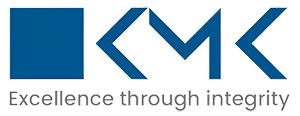The One Big Beautiful Bill Act: Key Federal Tax Changes for 2025

Introduction
On July 4, 2025, Congress passed the One Big Beautiful Bill Act (OBBBA). This legislation makes several 2017 tax cuts permanent, introduces new deductions, and raises certain limits. It also accelerates the phase-out of some green energy tax credits. For both individuals and businesses, these changes have important planning implications. Many U.S. companies are already exploring solutions like partnering with a Global Capability Center (GCC for Accounting & Finance Services) to navigate these updates efficiently.
Table 1: Key Changes – Before and After
Tax Rule | Before OBBBA | After OBBBA (2025) |
Income Tax Rates | 2017 rates expire in 2025. | Lower rates made permanent. |
Standard Deduction | $13,850 (single) / $27,700 (married). | $15,750 (single) / $31,500 (married). |
Senior Deduction | Extra ~$1,850 for age 65+. | Extra $6,000 (single) / $12,000 (married), phased out above $75k/$150k income. |
SALT Deduction Cap | $10,000. | $40,000 until 2029, then $10,000 from 2030. |
Tip Income Deduction | Not deductible. | Deduct up to $25,000 (2025–2028). |
Overtime Pay Deduction | Not deductible. | Deduct up to $12,500 (single) / $25,000 (married). |
Child Tax Credit | $2,000 per child. | $2,200 per child, inflation-adjusted from 2026. |
Auto Loan Interest | Not deductible. | Deduct up to $10,000 for U.S.-made cars bought after 2024. |
Child Savings Accounts | None. | New “Trump Accounts” for children under 8 (details pending). |
Estate & Gift Tax Exemption | ~$13.6M per person. | $15M per person / $30M per couple. |
Bonus Depreciation | Phasing down from 100%. | 100% made permanent. |
Section 179 Limit | $1.16M. | $2.5M. |
QBI Deduction | Ends in 2025. | Permanent, with higher income thresholds. |
Energy Credits | Extended into late 2020s. | Many end earlier – some by 2024–2026. |
Impact on Individuals
- Lower rates secured: Income tax brackets will stay at 2017’s reduced levels beyond 2025, preventing a tax hike in 2026.
- Higher standard deduction: More income will be tax-free before itemized deductions are considered.
- Enhanced senior deduction: Seniors aged 65+ will see a large deduction increase, but it phases out at higher incomes.
- Expanded SALT deduction: Taxpayers in high-tax states can deduct more state/local taxes until 2029.
- New income-based deductions: Workers earning tip or overtime income, and those financing U.S.-assembled cars, gain new write-offs.
- Child Tax Credit increase: Families receive a higher per-child benefit, with future inflation adjustments.
- Estate tax relief: Higher exemption thresholds mean fewer estates will owe federal estate tax.
Impact on Businesses
- Permanent 100% bonus depreciation: Allows immediate expensing of qualifying property without phase-out.
- Higher Section 179 expensing limit: Lets businesses deduct more of their equipment and software purchases upfront.
- QBI deduction made permanent: Pass-through entities can continue to deduct up to 20% of qualified business income.
- Accelerated phase-out of energy credits: Renewable energy tax benefits will be available for a shorter period, requiring quick action.
Businesses working with a Global Capability Center (GCC for Accounting & Finance Services) can integrate these changes into their tax strategy faster, thanks to specialized teams handling compliance, reporting, and planning.
Planning Considerations with Explanations
- Time-sensitive deductions: Certain provisions, like tip and overtime deductions, are temporary and expire after 2028. Taxpayers should use them while available.
- Energy incentives: Many green energy credits will end earlier than planned; projects should be started soon to qualify.
- State and local tax planning: The $40,000 SALT deduction cap is temporary; it reverts to $10,000 in 2030, so higher deductions should be used now.
- Business investments: Permanent expensing provisions encourage purchasing or upgrading assets sooner rather than later for immediate tax benefits.
- Estate planning: The $15M exemption per person offers an opportunity to transfer wealth with reduced estate tax exposure.
For companies with growing operations, outsourcing through a Global Capability Center (GCC for Accounting & Finance Services) can help track these deductions and credits across multiple jurisdictions without overloading in-house teams.
Next Steps for Taxpayers and Businesses
For Individuals
- Review income projections: This helps determine which deductions apply and if it’s worth accelerating or delaying income.
- Check senior deduction eligibility: Those 65+ should confirm if they meet income limits to benefit fully.
- Maximize SALT deductions: High-income taxpayers in states with high property or income taxes can benefit before the cap drops.
- Plan for the Child Tax Credit: Families should update tax withholdings to reflect the increased credit.
- Consider timing for vehicle purchases: Buying U.S.-assembled cars after 2024 can generate additional interest deductions.
For Businesses
- Schedule capital expenditures: Immediate expensing makes it more attractive to invest in machinery, vehicles, or software now.
- Evaluate QBI deduction eligibility: Small business owners should confirm qualification and consider restructuring if needed.
- Act on renewable energy projects: Installations and upgrades should be completed before credits expire.
- Update long-term strategy: Permanent rate changes allow for stable multi-year tax planning.
Many U.S. firms are turning to a Global Capability Center (GCC for Accounting & Finance Services) to maintain compliance, optimize deductions, and manage these updates without hiring large domestic teams.
Read Also: GCC vs GBS Explained: Key Differences Between the Two Global Business Models
How KMK Ventures Can Assist
At KMK Ventures, we provide strategic tax planning, compliance support, and real-time guidance to help you maximize the benefits of new legislation. For accounting firms, we also offer white-label solutions through our Global Capability Center (GCC for Accounting & Finance Services) model, helping you expand capacity without adding permanent staff.
The One Big Beautiful Bill Act creates both opportunities and time-sensitive provisions. With the right planning, you can take advantage of enhanced deductions, credits, and exemptions before they change or expire — ensuring your business and personal finances stay ahead.
Conclusion
The One Big Beautiful Bill Act brings some of the most significant federal tax changes in recent years. By making lower tax rates and certain deductions permanent while also introducing new, time-limited opportunities, it creates both long-term stability and short-term urgency for taxpayers and businesses. Proactive planning is essential. Whether you’re an individual maximizing deduction or a business making strategic investments, acting early will help capture these benefits before they expire or phase out. At KMK Ventures, our team — backed by a Global Capability Center (GCC for Accounting & Finance Services) approach — is ready to help you navigate these changes with tailored advice and actionable strategies so you can make the most of the new rules starting in 2025.
About the Author
Bert Wilson serves as our U.S. representative and client success manager, specializing in U.S. tax and accounting services. With expertise in tax compliance, financial reporting, and outsourced accounting solutions, Bert helps clients navigate complex financial challenges. Holding a Master’s degree in accounting and having obtained his C.P.A. license from the state of Colorado, he ensures client expectations are exceeded through tailored solutions and seamless collaboration with our India team. Passionate about building relationships, Bert enjoys both early mornings and outdoor sports, embodying a proactive approach to success
serves as our U.S. representative and client success manager, specializing in U.S. tax and accounting services. With expertise in tax compliance, financial reporting, and outsourced accounting solutions, Bert helps clients navigate complex financial challenges. Holding a Master’s degree in accounting and having obtained his C.P.A. license from the state of Colorado, he ensures client expectations are exceeded through tailored solutions and seamless collaboration with our India team. Passionate about building relationships, Bert enjoys both early mornings and outdoor sports, embodying a proactive approach to success
Let’s Take Our Conversation Ahead
KMK is a top outsourced accounting and tax service provider. We offer end-to-end accounting and tax services for small to mid-sized businesses, with a team of 875+ professionals, including certified public, chartered, and staff accountants.
USA:
651 N Broad St Suite 205, Middletown, DE 19709, USA
Phone: 310-362-2511
India:
300, Sankalp Square-3B
Sindhu Bhavan Marg,
Ahmedabad, Gujarat 380058
For Career: 91-98240-42996
Developed by Bluele | Copyright © 2025 | KMK Ventures Private Limited. | All Rights Reserved


